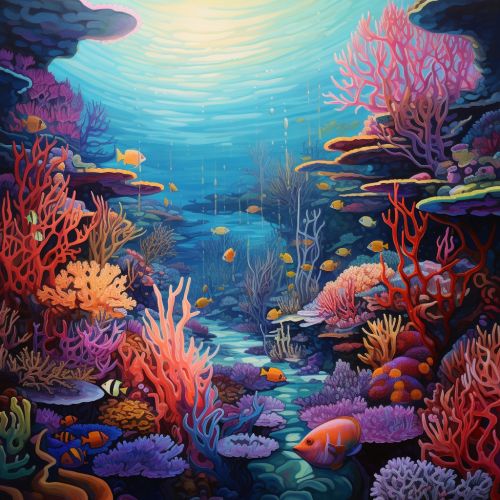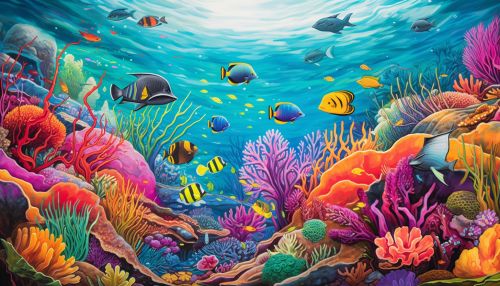Climate Change and Coral Reefs
Introduction
Climate change is a global phenomenon that has far-reaching impacts on various ecosystems, including coral reefs. Coral reefs are diverse underwater ecosystems that are home to a multitude of marine species. They are often referred to as the "rainforests of the sea" due to their high biodiversity. However, these ecosystems are under threat due to the effects of climate change, which include rising sea temperatures, ocean acidification, and increased storm intensity.


Impact of Climate Change on Coral Reefs
Rising Sea Temperatures
One of the most significant impacts of climate change on coral reefs is the increase in sea temperatures. Corals are sensitive to temperature changes and can only survive within a certain range. When sea temperatures rise, corals undergo a process known as coral bleaching, where they expel the symbiotic algae living in their tissues, causing them to turn white. This leaves the corals stressed and more susceptible to disease.
Ocean Acidification
Another effect of climate change is ocean acidification, a process that occurs when the ocean absorbs carbon dioxide from the atmosphere. This leads to a decrease in the pH of the seawater, making it more acidic. This can have detrimental effects on corals as it reduces the amount of calcium carbonate available in the water, a vital component that corals need to build their skeletons.
Increased Storm Intensity
Climate change is also predicted to increase the intensity of storms, which can lead to physical damage to coral reefs. Storms can cause breakage and displacement of corals, and the increased wave action can lead to further erosion and damage to the reef structure.
Consequences of Coral Reef Degradation
The degradation of coral reefs due to climate change has far-reaching consequences. Coral reefs play a crucial role in supporting marine biodiversity, providing food and shelter to a multitude of marine species. The loss of these ecosystems could lead to a decline in marine biodiversity, affecting the livelihoods of millions of people who depend on these ecosystems for food and income.
In addition, coral reefs also play a significant role in coastal protection, reducing wave energy and preventing coastal erosion. The loss of these ecosystems could increase the vulnerability of coastal communities to storms and sea-level rise.
Mitigation and Adaptation Strategies
There are various strategies that can be implemented to mitigate the impacts of climate change on coral reefs. These include reducing greenhouse gas emissions, implementing marine protected areas, and promoting coral reef restoration efforts.
Reducing greenhouse gas emissions is crucial in mitigating the impacts of climate change on coral reefs. This can be achieved through a variety of measures, such as transitioning to renewable energy sources, improving energy efficiency, and promoting sustainable land use practices.
Marine protected areas can also play a crucial role in protecting coral reefs from the impacts of climate change. These areas can provide a refuge for coral species, allowing them to recover from disturbances and adapt to changing conditions.
Coral reef restoration efforts are another important strategy in mitigating the impacts of climate change on coral reefs. These efforts involve the cultivation and transplantation of corals to degraded reef areas, with the aim of promoting reef recovery and resilience.
